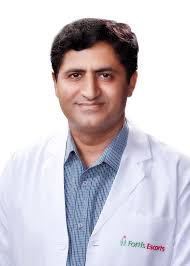Taste Disorders - Know The 3 Most Common Ones!
Part of the joy of eating is in tasting the food. However, not everyone can enjoy their sense. Taste disorders affect up to 15% of the world’s population. However, many people do not recognize the signs and consult a doctor for this condition. There are many different types of taste disorders. Some people are born with such disorders while in other cases, it develops as a result of radiation therapy, infections, surgery, bad oral hygiene etc. The good news is that many of these disorders are curable once the trigger has been identified.
What is a taste disorder?
The tongue is divided into different zones which respond to different tastes such as salty, sweet, sour, bitter and umami. An inability to recognize one or more of these tastes is known as a taste disability. It is important to note that the reaction of taste-buds is relative. Thus, suddenly finding candy sweeter after eating a bland meal is not a taste disorder. While taste disorders may be common, true taste loss is rare. This is a condition known as ageusia.
Most common taste disorders are as below:
- Hypogeusia:This is the most common taste disorder. It is marked by the lingering of a taste even when the mouth is empty. In such cases, people also usually complain of reduced ability to taste flavours that are sweet, salty, bitter, sour etc.
- Dysgeusia:This is a condition that is marked by a salty, foul, rancid taste that lingers in the mouth. This may be accompanied by a burning sensation in the mouth. This condition is known as burning mouth syndrome. It is most commonly diagnosed amongst middle-aged and elderly women.
- Anosmia:In many cases, a lack of taste is due to an inability to smell the aroma of the food. Without being able to smell food, the taste receptors also have difficulty identifying the different flavours. One of the most common examples of this is how patients suffering from a cold complain of being unable to taste their food.
When to seek help?
If the inability to taste food persists for a long time, one should consult a doctor. This becomes necessary especially when a loss of taste causes weight loss of any other changes in the body. The doctor will identify the factor triggering the loss of taste and treat it to revive taste buds. Making a few lifestyle changes such as quitting smoking can also help treat a loss of taste.



+1.svg)
